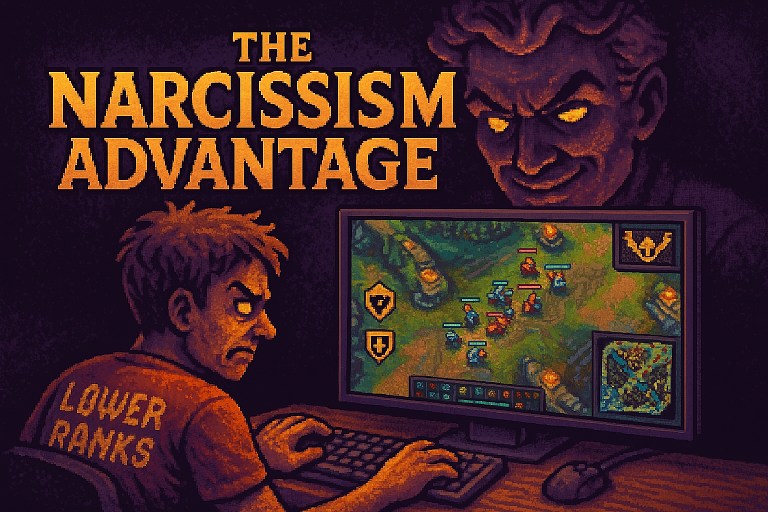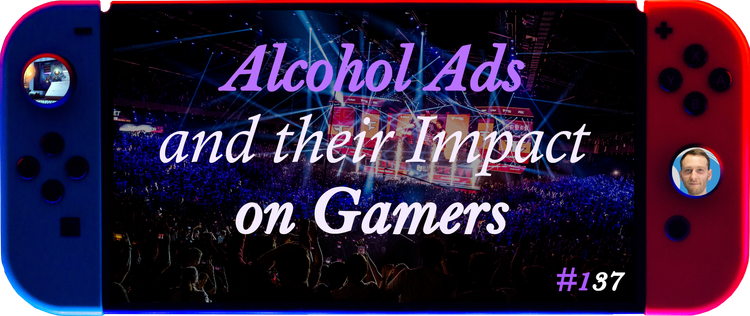Narcissists In Gaming: Why They Win More Games

"... Narcissism is lightly beneficial to success in LoL..." [1] Narcissism, typically perceived as a negative trait, may have some benefits that shine in gaming. Why is that, and what does it have to do with team communication?
• Gaming in lower-ranked leagues is often characterized by toxic behavior.
• "Narcissistic people are described as exploitative, entitled, arrogant, and defensive in response to criticism... [and] may be more likely to take credit for success but blame others for failures." [1]
• The description of narcissistic people fits the toxic behavior of players in lower leagues.
• A positive (but small) relationship between the dark personality trait Narcissism and performance in LoL was found.
• Other personality traits (Big Five) appear to play a minor role—at best—in success in LoL.
☠️ Toxic to the Bones
Every gamer knows that team communication in gaming can be toxic. This is especially the case in lower leagues, where it negatively affects the experience of players—one reason why Riot Games has disabled chat in lower leagues and is strictly punishes 'negative behavior'. All of us have or have been blamed or criticized for our own or others' mistakes at least a million times.
Since team communication, a positive team atmosphere and other factors contribute to better performance, such toxic behavior negatively impacts the success of the individual player and team. This, among other things, keeps lower-ranked players stuck in ELO hell.
One of these additional factors that we know of contributing to performance are personality traits, and one appears to be particularly strongly associated with performance in LoL: Narcissism—the dark personality trait.
"Narcissistic people are described as exploitative, entitled, arrogant, and defensive in response to criticism... [and] may be more likely take credit for success but blame others for failures." [1]
This description matches the player behavior in lower ranks, doesn't it? In addition, Narcissism has been liked to behavior that is less team-oriented, such as less helpful behavior towards co-workers, and low empathy. In online games—where teams are temporary—"players may feel even less obligated to reciprocate prosocial behavior in LoL games." [1]
To explore the relationship between performance and trait Narcissism in an esports context, the authors surveyed 392 ranked players, measuring their level of Narcissism by asking questions such as: "I like to have authority over others" and "I am going to be a great person." They also assessed the Big Five personality traits, and performance—measured using players' peak ranking.
📊 Narcissism in the Rift: What the Data Reveals
"... none of the five-factor model personality traits had a significant relationship with peak ranking; however, there was a positive relationship between Narcissism and peak ranking." [1]
Ok, so narcissistic gamer are more successful in-game, but why? The authors argue that "narcissistic players are working harder for a higher ranking", meaning they put more effort into performing well, since winning games is the only way to rank up. Also, remember the toxic behavior of lower-ranked players? The authors "hypothesize that lower-ranked players may be more narcissistic."
"However, [for higher-ranked players] Narcissism may instead help emotional regulation and allow players to persevere through minor setbacks, believing they are better than their current, in-game opponents." [1]
But don't worry, the effect of Narcissism on gaming performance was found to be small, meaning being narcissistic doesn't give you too much of an edge in-game. Interestingly, other personality traits (using the five-factor model, also called the Big Five) didn't have a significant impact on performance and therefore "may have a small to negligible role in LoL ranking success".
Thanks for reading! More Gaming Science next week. See you,
Christian 🙂







